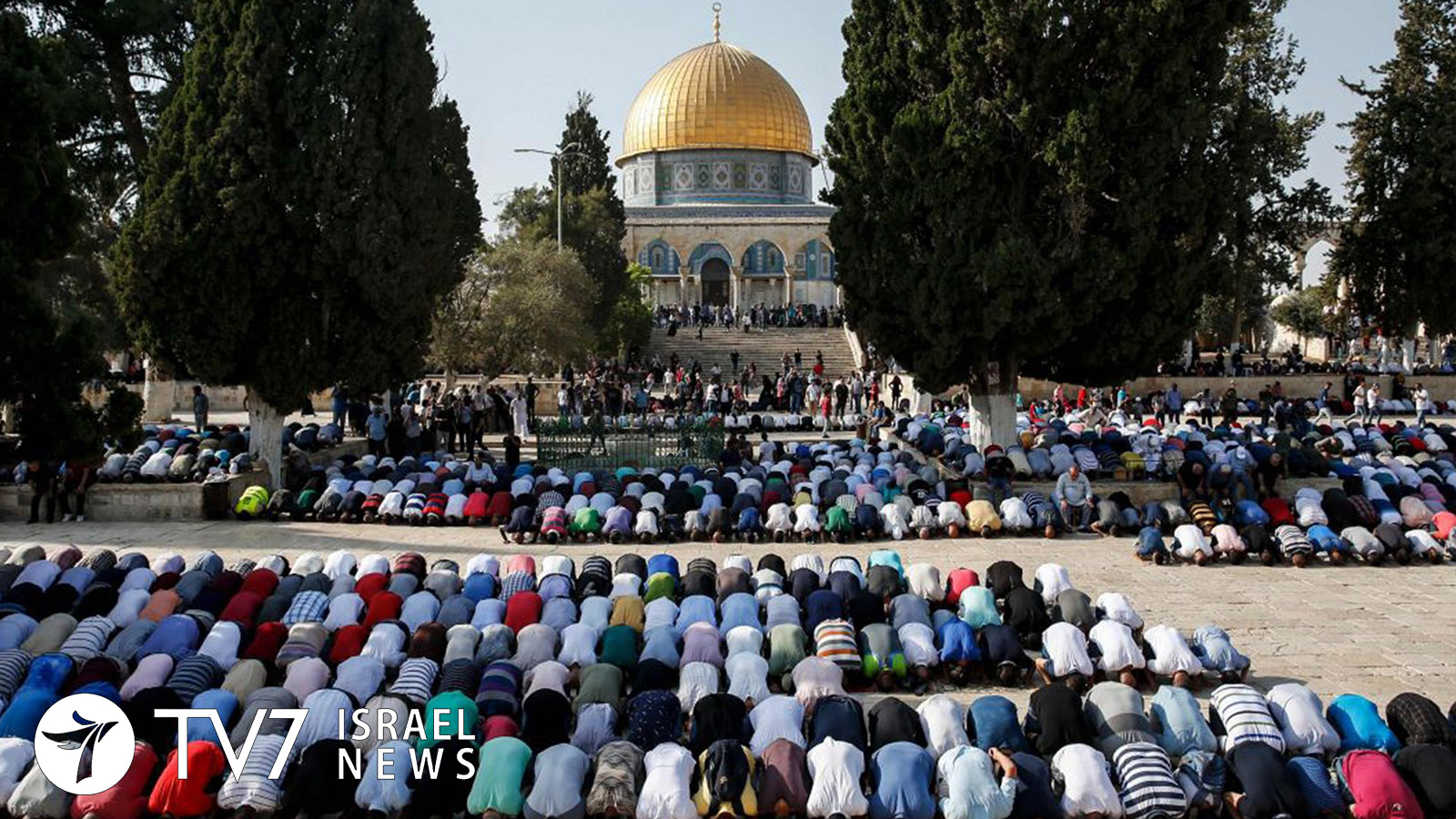Jordanian officials are holding extensive talks with their Israeli counterparts, in efforts to alleviate a surge in tensions surrounding the Temple Mount in Jerusalem’s Old-City.
The latest friction pertains to a dispute between the Islamic Waqf and Israeli police over a walled courtyard in the northeastern part of the Mount, which houses a hall that provides access to the only eastern gate of the ancient compound, commonly known as the Golden Gate.
In 2003, at the height of the Second Intifada, Israeli Authorities decided to seal off the structure, after a police investigation revealed that an organization with ties to the Islamist Hamas was effectively controlling the hall, using it as an office from where they disseminated radical ideology of violence against non-Muslims.
In recent weeks, however, the Islamic Waqf has challenged the closure, convening and staging prayer-protests in the area. Despite a repeated Israeli court order to close the site, the Waqf Council – which is appointed and funded by the Hashemite Kingdom of Jordan – has vowed to keep the courtyard open.
A Jordanian official told TV7 that “(Amman) is undertaking a series of measures to protect the Golden Gate, and preserve the legal and historic status quo in the compound.” The official further stressed that the Jordanian government is opposed to Israeli demands that it be closed.
The source pointed to Article 9 of the Israeli-Jordanian peace treaty, according to which Israel must respect the role of the Hashemite Kingdom of Jordan as custodian of the Muslim shrines in Jerusalem, and that it must permit freedom of access to places of religious and historical significance.
The official did not mention, however, the fact that the peace treaty demands of “each party” to provide freedom of access to places of religious significance, and that – in contrast to the international demand to perpetuate the status quo that forbids non-Muslims from worshipping at the site where both biblical temples once stood: it calls upon “the parties” to act together to promote interfaith relations among the three monotheistic religions, with the aim of working towards religious understanding, moral commitment, freedom of religious worship, tolerance and peace.
While a final arrangement has yet to be formulated between all sides involved, a temporary solution to the Golden Gate crisis appears to have been found. A senior Jordanian official revealed that Israel agreed to allow the Islamic Waqf to bring construction materials into the compound for the sole purpose of maintenance work and renovations that are required for upkeeping the ancient gate, as part of incipient understandings. The source said that there were no disagreements over the need for maintenance and renovations because they were technical matters. Furthermore, the Jordanian official noted that once the work begins, worshippers would not be allowed into the Golden Gate compound in any case.
